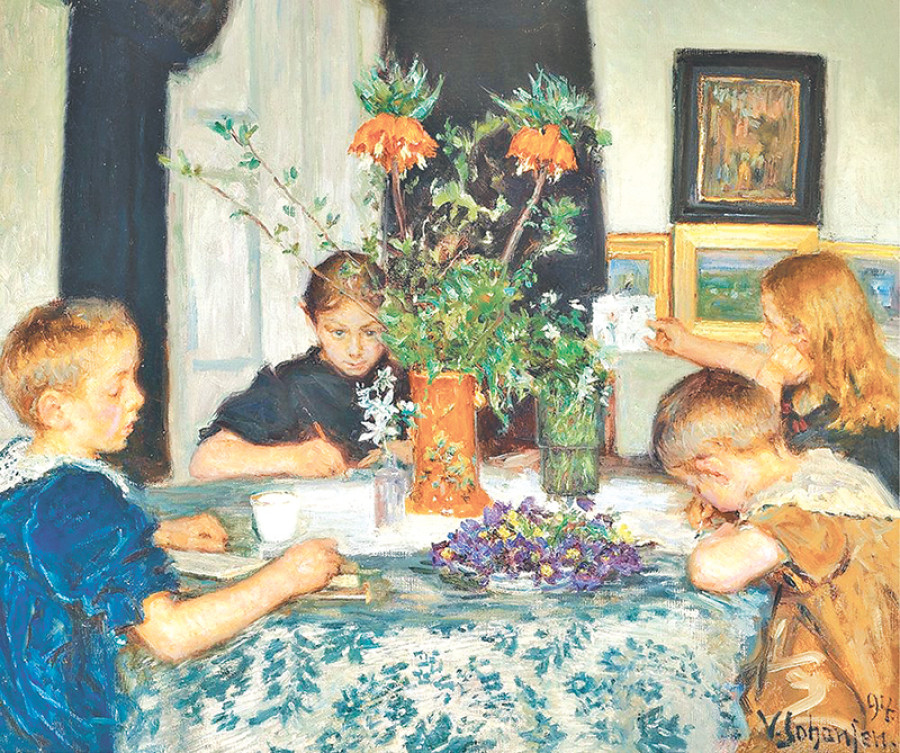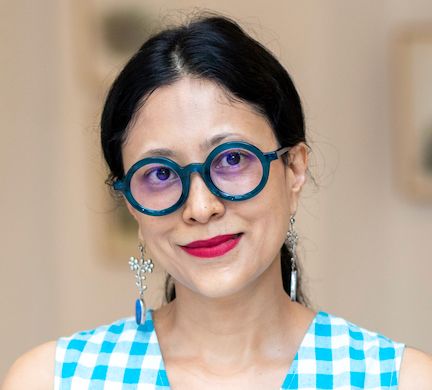Entertainment
Art a necessity, not a frivolity
Growing up I didn’t really care about art.
Sophia L Pandé
Growing up I didn’t really care about art. But to be more precise, it was more that I was unaware of it than uncaring of it. Our schooling systems were then, and are still, utterly ambivalent of the arts; to the extent that even studying literature is frowned upon, or perhaps, slightly more kindly: is regarded more as the pursuit of a dilettante rather than a true scholar. As a result I was barely sentient of the art around me, the richness of the Newar tradition that permeates the Valley and has brought so many expatriates here to settle and study it was something I discovered only as an adult.
It was not just the school system that was at fault though. My parents took us to museums wherever we went; by the time I was a teenager I’d been to some of the most important museums in the West; but not the ones in my own region. While both myself and my brother (we are thirteen months apart only) were suitably breath taken by the Mona Lisa, icons of the Renaissance, and lots and lots of French Impressionists, we forgot them as soon as we walked away from the frames; there was no memorable narration to contextualise these artworks for us; I didn’t even know there was a subject called “The History of Art”—and if you had told me that’s what I’d study in college, I would have laughed my head off.
To come back to the point, my experience is not an unusual one. I came to the arts entirely by way of accident when spending two years in Italy, studying for an IB programme before ending up in a classic American Liberal Arts College. The two years in Italy were influential in many ways, but perhaps the most important experience I had was incidentally ending up in the extra-curricular class of a man named Henry Thomas, an art historian extraordinaire whose creative will was channeled into a passion for teaching; his flair for presenting and unlocking the riches of the world cultures altered my brain—revealing an entirely new world to me.
Then in college, I dived headlong into the study of art history and literature. Elated by the arts, I continued on to an MFA in film making—but even up till a few months ago, I couldn’t have convinced you if you asked me why I believe that art is essential, necessary, not frivolous.
The answer came to me just recently one day while I was reading Mapin Publishing’s marvelous new book on Brigitte Singh, the French woman who revived Rajasthan’s incredible, then neglected heritage of woodblock printing on textiles, making a name for herself and ensuring great fame for the practice throughout the world. Singh was trained as an artist in a fine arts programme in France, she came to Jaipur to learn miniature painting from a master; she ended up staying and revolutionising the textile industry, re-defining a craft into a luxury that is admired throughout the world. The beginning of the book on Brigitte Singh brilliantly defines this extraordinary woman’s achievements through a quote by another profound writer, Anaïs Nin, who wrote:
“…but for me the artist simply means one who can transform ordinary life into a beautiful creation with his craft. Bud I did not mean creation strictly applied only to the Arts. I meant creation in life; the creation of a child, a garden, a house, a dress.
I was referring to creativity in all its aspects. Not only the actual products of art, but the faculty for healing, consoling, raising the level of life, transforming it by our own efforts. I was talking about the creative will.”
With these words, Nin not only contextualises Singh’s particular achievements, she also brings art firmly into the realm of humanism, and closes the gap between “art” and “craft”, making us understand why one is not possible without the other: very few artists can get by without first mastering their chosen craft, be it drafting, sewing, or playing basic chords—for the painter, fashion designer, or musician.
In short, all I mean to say is that I have now discovered for the first time why art is so important to me: it is because it is the one thing that improves our quality of life, bringing us out of the quotidian by stopping to make a beautiful flower arrangement for ourselves, cooking a meal that is just so, teaching a child a new song, making someone laugh, day dreaming, picking up a coin in the street and making an outlandish wish, buying all the books you don’t have time to read, but hope you will someday, straightening objects, or adjusting them just so to please only yourself, bringing sweets to work to make people happy, smiling at the bus driver, singing loudly to the latest pop song ad infinitum.
While I may have finally found a kind of key that made me understand why I value art so much, it does take patience, time, and will to convince the world at large why it is necessary to be able to have access to the arts in some form or the other. Most of us never use trigonometry or advanced physics, subjects we are forced to learn in Nepal. Perhaps all of us could take a step back and see how we can use our own creative wills in whatever way we can, infusing it into our daily lives and trying to bring it to those who need it most, either by making up a magical story for children, or using shaving foam to draw silly pictures on the mirror to make our partners laugh. Art is necessary to make the ordinary extraordinary, and the wonderful thing is, we all have the power to do it.




 15.12°C Kathmandu
15.12°C Kathmandu










